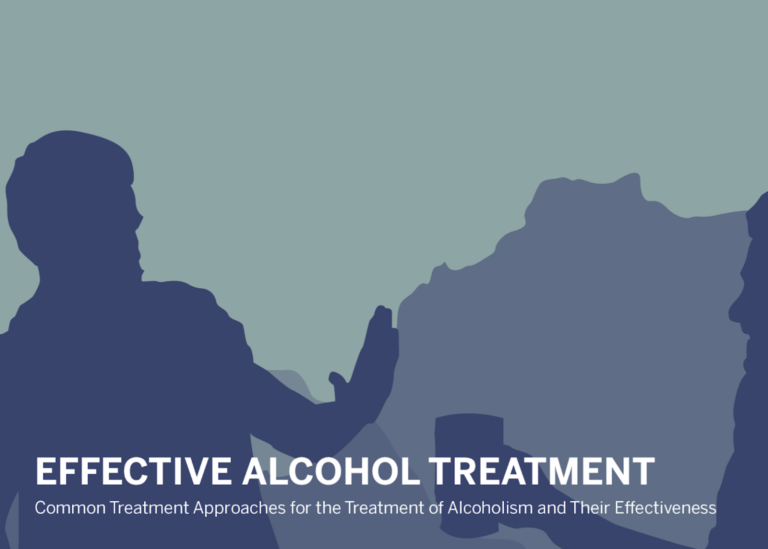How Can You Stop Enabling an Addict or Alcoholic

If you have a friend or family member who is an addict or an alcoholic, you have probably heard from numerous people that you are an enabler. Al-Anon is a well-known organization that assists loved ones of addicts and alcoholics cope with the substance abuse and alcoholism of a loved one while also addressing their role in enabling that specific behavior.
However, how do you know whether you are enabling them or if you are simply helping them? If you end up finding out that you are actually enabling them, how do you stop?
First, let’s discuss the differences between helping and enabling, and then we will give you a few sensible tips and illustrations on how you can put an end to enabling your alcoholic loved one.
Enabling vs. Helping Your Alcoholic Loved One
In many instances, when you are just trying to offer help to a loved one, family members and friends tend to make the overall circumstance worse by enabling—not helping—the alcoholic.
Enabling can be described as doing certain things for an alcoholic or addict that he or she normally would or could do for him or herself in the event that he or she was sober. Helping can be defined as doing certain things for an alcoholic or addict that he or she would not or could not do for him or herself in the event that he or she were sober. Helping doesn’t protect him or her from the repercussions of his or her own individual actions.
Ultimately, anything that you do—regardless of how little or big—that actually helps to protect the addict or alcoholic from the repercussions of their actions could potentially be enabling him or her to postpone a choice in getting help for their addiction. Therefore, it is always in the addict or alcoholic’s best interest if you simply stop what you’re doing that is enabling them. Believe us; enabling is truly not helping them.
How You Can Stop Enabling the Drug Addict or Alcoholic
By now, you may have come to the realization that you’ve been enabling your family member or friend even though you believed you were actually helping and you are now wondering how you can change. In a sense, it can be incredibly empowering to learn how to stop enabling a drug addict or alcoholic. It is impossible to change other individuals, but it is possible to change our own reactions and behaviors towards other individuals. Below are a few different practical things you can do to stop being an enabler.
The examples below may use a he or she; however, it is important to remember that an alcoholic or addict can be a male or female, a spouse, a child, a parent, another family member, a friend, a colleague, or really just about anyone.
STOP DOING ANYTHING THAT PERMITS THE ADDICT OR ALCOHOLIC TO CARRY ON WITH THEIR PRESENT WAY OF LIFE
Are you currently working full-time and paying for some—or all—of the addict’s or alcoholic’s bills that he would be paying for if he wouldn’t have missed “X” amount of days from work or gotten fired as a result of drinking or drug use? Or maybe you’re offering the addict or alcoholic shelter and food? If you are doing either or both of these things, it is possible that you are enabling. You’re offering him what is considered a “safety net” that is allowing him to skip or lose his employment with no actual repercussions.
DO ABSOLUTELY NOTHING TO “AID” THE ADDICT OR ALCOHOLIC THAT THEY WOULD OR COULD BE DOING IF THEY WERE NOT DOING DRUGS OR DRINKING
If the alcoholic lost her license and you are giving her a ride to a job interview or even her Alcoholics Anonymous meeting, then you are helping her because these are things that she can’t do for herself. However, things that she should be doing for herself include researching what it would take to get her license back, finding the schedule for AA meetings in the local vicinity, or search the newspaper classifieds for potential employment opportunities.
STOP COVERING UP, MAKING EXCUSES, OR OUTRIGHT LYING FOR THE ADDICT OR ALCOHOLIC
Have you ever told your loved one’s boss that he wouldn’t be able to make it into work today because he had the flu when the actually truth was that he was too hungover from last night to get out of bed and go to his job? Making this type of statement to your loved one’s boss is enabling due to the fact that it is simply permitting the alcoholic to avoid any kind of repercussions of his actions. Sure, he could get fired from his job—which is what you are probably thinking—but that may be just what he needs to finally make the decision to get the help that he needs and deserves.
DON’T TAKE ON DUTIES OR RESPONSIBILITIES THAT BELONG TO THE ADDICT OR ALCOHOLIC
Are you taking care of the addict’s or alcoholic’s everyday household tasks? Have you assumed his or her parenting responsibilities? If you’re doing something that the addict or alcoholic would or should be doing if he or she was clear-headed and sober, then you are essentially enabling him or her to evade his or her responsibilities or duties.
DON’T LOAN OR GIVE MONEY TO THE ADDICT OR ALCOHOLIC
If you are giving money to the addict or alcoholic for any reason—and we do mean any reason—you should just be buying the drugs or alcohol for him or her. In either case, you are enabling him or her.
DO NOT “RESCUE” THE ADDICT OR ALCOHOLIC BY BAILING HIM OR HER OUT OF JAIL OR PAYING FINES
While you may feel the need to rush in and “rescue” the addict or alcoholic, it isn’t helping the situation at all. Instead, it only enables him or her to evade the repercussions of his or her actions. In Al-Anon, this is known as “putting pillows under them” so that the addict or alcoholic never has to feel the pain of the mistakes that they are making.
DON’T ARGUE, SCOLD, OR BEG WITH THE ADDICT OR ALCOHOLIC
You may believe that scolding or arguing with the addict or alcoholic for his or her latest behaviors is anything other than enabling, but the truth of the matter is that it could be. If the only repercussion that he or she suffers from his or her behaviors is a verbal spanking from an individual that cares about him or her, then he or she can generally slide by without facing noteworthy repercussions.
DON’T REACT TO HER LATEST MISHAP, ALLOWING HER TO ACT IN RESPONSE TO YOUR REACTION RATHER THAN HER OWN INDIVIDUAL ACTIONS
If you do or say something negative and unhelpful in response to the addict’s or alcoholic’s latest behaviors, then he or she can respond to your own reaction. If you simply stay quiet and go about your business as if nothing has occurred, then the addict or alcoholic will have nothing at all to respond to other than his or her own actions. Reacting negatively only gives him or her an emotional out, thereby enabling him or her.
DON’T ATTEMPT TO CONSUME ALCOHOL WITH THE ALCOHOLIC
Some friends and family members—who feel deserted by the alcoholic due to his or her relationship with alcoholic beverages—attempt to become part of the alcoholic’s world by attempting to drink with him or her. This hardly ever works. For one, the alcoholic’s relationship with alcoholic is baffling, cunning, and extremely powerful. More often than not, the average drinker is unable to keep up, and this is enabling in its purest form.
SET SOME LIMITS AND STICK TO THEM—AVOID MAKING ANY TYPES OF THREATS
If you tell the alcoholic or addict that if they don’t stop drinking or doing drugs that you will leave, it is simply giving them an ultimatum and making a threat—it often won’t go anywhere. However, if you tell them that you won’t permit drinking or drug use in your home, you are setting a limit. While you may be unable to control whether a person stops drinking or using drugs, you absolutely can decide the type of behavior that it allowed in your life.
CAUTIOUSLY EXPLAIN THE LIMITS THAT YOU’VE SET, AND CLARIFY THEY’RE FOR YOU AND NOT HIM OR HER
Al-Anon teaches members that they don’t have to continue accepting intolerable actions in their lives. While it is true that you cannot control other people’s behaviors, you do have options regarding the behaviors that you deem unacceptable and acceptable in your life. When it comes to setting limitations, this is something that you do for your own benefit—you aren’t necessarily attempting to control the behavior or someone else. Now, to do this effectively, though, you should attempt to detach yourself to a certain degree. Detaching is defined as letting go of the alcohol or drug problem of the other person so that you can look at the situation objectively.
Now that you have read throughout the entirety of this list, you have likely already taken note of a few ways in which you have been negatively enabling a loved one with drug habits or alcoholism.
When You Finally Stop Enabling
In a number of cases, when the enabling system is eradicated from an addict or alcoholic, the fear that they will experience will generally compel them to search for the help that they need. Of course, there are no assurances, and it can be hard to understand.
Take the time to gain knowledge about the disease of drug abuse and alcoholism as well as enabling, and attend a local Al-Anon meeting. By attending a meeting, you may feel more empowered to discontinue enabling and not so along in the whole process. However, it is important to understand that you can’t control the actions of someone else, but you do have the control to create limitations and respect your own life.
If you have any questions, don’t hesitate to reach out to us here at Shadow Mountain Recovery.









